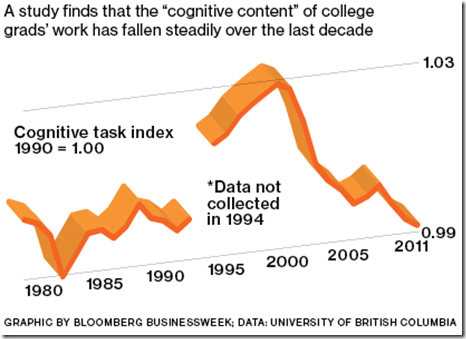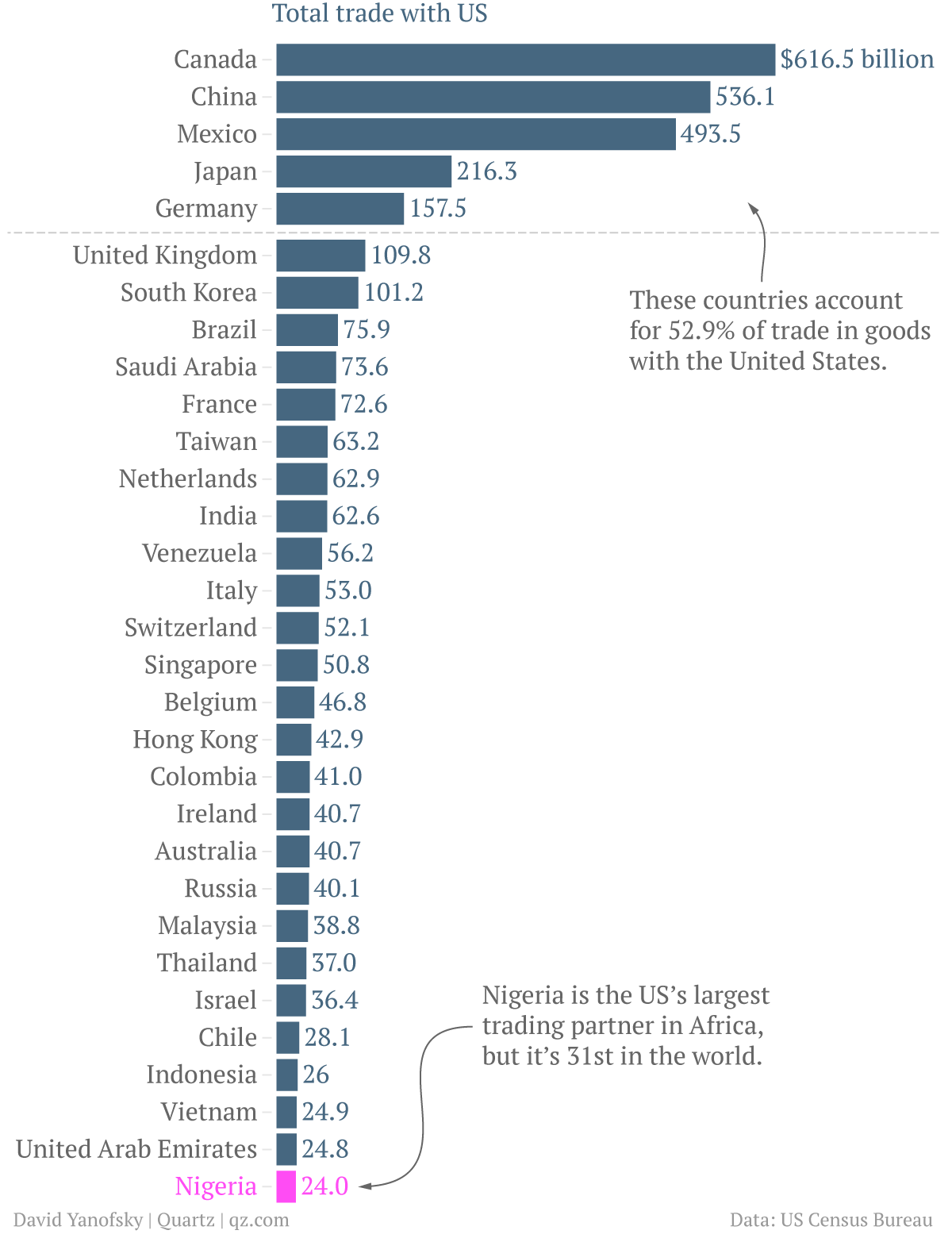Back in March, when I first heard about it, I posted about the new research from Paul Beaudry, David Green and Benjamin Sand. I was taking a shot that theirs’ is the sort of result that ends up in undergraduate textbooks in 5 or 10 years.
I think I’m on the right track, since the article has now been mentioned in the cover story to the Mary 13-19 issue of Bloomberg Businessweek. That’s not an outlet for serious academic research unless it’s really provocative.
The researchers found that the average “cognitive content” of tasks performed by employed college graduates of all ages peaked in 2000 and has dropped fairly steadily since. … In the same vein, the Conference Board, a company-supported research organization, recently found that since 2000 the importance of math and science skills in jobs declined, while social skills became more important.
This is one of those horrifyingly-difficult-to-read-correctly charts that the legacy media specializes in. Cognitive content is the name given in Beaudry et al. for the amount of technical knowledge a job takes; jobs high in cognitive content include management executives, professionals, and skilled technicians. The graph is for the current job of recent graduates. So it says that the amount of technical knowledge required peaked around 2000, and has declined to the level from the 1980’s.

In short, the economy needed lots of technically skilled people in the 90’s, and since you can’t retrain very many people in mid-career, that gap was filled by college graduates But now that those people are in mid-career, the economy doesn’t need as many technically skilled young people.
What isn’t shown on the graph is the Beaudry et al. argue that schools are still producing lots of technically skilled graduates, and that’s no longer where the jobs are.
The result is that technically skilled graduates are going into jobs that don’t require all the technical background (e.g. barista), and pushing the people with lower skills out of those jobs.
There’s a set of Powerpoint slides in PDF format here. The penultimate slide shows that new graduates at the top end of the income distribution got big gains in the 1990’s, consistent with there being a big benefit to being highly skilled. But that same group has done just as well (or poorly) as any other group since 2000, consistent with the excess demand for skills dissipating.


